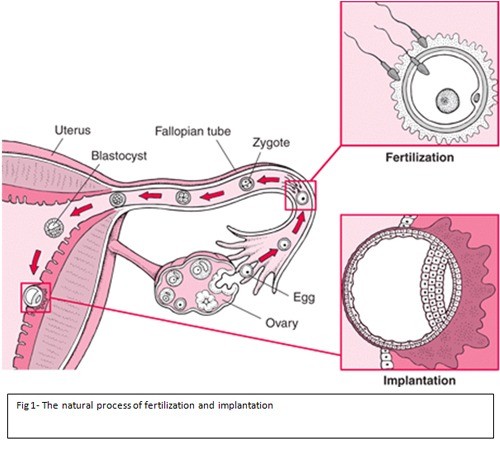Dr. Shaweez Faizi is a consultant in gynaecology and reproductive medicine at Unity Hospital Mangaluru.
Infertility by definition is the inability of a couple to conceive a child after 1 year of unprotected sexual intercourse. With the advent of science and research in this particular field, many couples who believe they have infertility have been regrouped as being sub-fertile where there is only a delay in conceiving. Unlike any other medical condition, the diagnosis of subfertility is not made in a day.
The sub-fertile couple
For the couple, it gradually sinks in when they realize that they have not been able to bear a child one month after the other. A negative urine pregnancy test where they are hoping for that second line of confirmation to appear, even faintly! Or the start of your periods- A sign that you are not pregnant is the sign and stuff that triggers a feeling that cannot be put in words by the couple.
However, like any other long-standing problem, the stages are probably the same. The realization of the problem, denial, trying for a few more months may help, re-realization! And finally gradual acceptance of the issue.
Then comes the next step- The decision to meet a doctor for an opinion. Several rounds of discussion, frustration-filled months, and depression may follow. Hesitation to visit a clinic, social stigma associated with the problem, worries of expenditures involved in the treatment process may lead to further delay in addressing the problem.
As doctors, we feel the society needs a change in the mental setup for this issue. Of course, there are couples who are showing up earlier, seeking treatment for want of a baby, but the above said hurdles still exist in all strata of the community. For the mental setup to change and more people to come forward for treatment, one of the most important factors is awareness of the issue.
The following section is a set of FAQ’s linked with infertility.
Q: Who should visit an infertility specialist?
A: A couple staying together and having unprotected intercourse with the inability of having conceived for 1 year.
Q: Should you consider visiting a specialist earlier than 1 year?
A: Yes, if the age of the female partner is ≥ 35years, if the couple suspects any underlying cause for infertility, it is advisable to get evaluated even 6 months after unprotected intercourse.
Q: What are the symptoms/pointers towards a potential underlying cause for infertility?
A: Female partner experiencing irregular, delayed periods/heavy bleeding/excessive pain during periods/during sexual intercourse. Male partner with difficulty in maintaining an erection/other coital difficulties.
Q: What to expect when visiting a fertility clinic?
A: Your preliminary visit will comprise a detailed history of your menstrual cycles/previous pregnancy details/past treatment history followed by initial hormonal evaluation, ultrasound, and semen analysis.
You will be explained in detail about the factors attributing to infertility for you as a couple and the possible treatment options.
For a better understanding, one must be aware of the natural process of conception/ becoming pregnant.
In a regularly menstruating woman, an egg is released between day 12 to day 14 of the menses cycle, which is carried by the fallopian tube. Following sexual intercourse after millions of sperms are released, the sperm must travel to the fallopian tube and fertilize the egg (in the fallopian tube). After fertilization, the embryo reaches the uterus 4 days later to attach to the inner uterine lining, following which the growth of the embryo occurs.

Depending on the risk factors/ pointers towards a problem, necessary investigations may need to be carried out and treatment will be planned accordingly.
Q: What can you do to contribute to better results in your treatment?
A: Lifestyle modifications such as maintaining a normal BMI, avoiding weight gain (both male and female partners), curtailing habits such as smoking/ consumption of alcohol/ junk foods will help a long way.
The process of evaluation and treatment for a couple with a fertility issue is a gradual one. Many investigations and treatments will be planned as per your menstrual cycles, few treatment results may need a follow up for even 3 to 6 months depending on the factors.
Hence it requires patience, persistence, and most of all a positive attitude by the couple to over the top of the issue goals.
Come start this journey with us and we assure you to guide you and partner in your journey towards parenthood. Meeting a fertility specialist is one of the several important steps you have to take to begin this journey so why postpone it for tomorrow!
Let the Truth be known. If you read VB and like VB, please be a VB Supporter and Help us deliver the Truth to one and all.
Ottawa (PTI): Three Indian nationals have been arrested by Canadian police on an anti-extortion patrol and charged after bullets were fired at a home.
Harjot Singh (21), Taranveer Singh (19) and Dayajeet Singh Billing (21) face one count each of discharging a firearm, and all have been remanded in custody until Thursday, the Surrey Police Service (SPS) said in a statement on Monday.
The suspects were arrested by patrol officers after an early morning report of shots fired and a small fire outside a home in Surrey's Crescent Beach neighbourhood, the LakelandToday reported.
On February 1, 2026, the SPS members were patrolling in Surrey’s Crescent Beach neighbourhood when reports came in of shots being fired and a small fire outside a residence near Crescent Road and 132 Street.
The three accused were arrested by SPS officers a short time later, the statement said.
SPS’s Major Crime Section took over the investigation, and the three men have now been charged with Criminal Code offences, it said.
All three have been charged with one count each of discharging a firearm into a place contrary to section 244.2(1)(a) of the Criminal Code.
The investigation is ongoing, and additional charges may be forthcoming. All three have been remanded in custody until February 5, 2026.
The SPS has confirmed they are all foreign nationals and has engaged the Canada Border Services Agency, it said.
One of the suspects suffered injuries, including two black eyes, the media report said.
Surrey police Staff Sgt. Lindsey Houghton said on Monday that the suspect had refused to comply with instructions to get out of the ride-share vehicle and started to "actively resist."
"As we were trained, he was taken to the ground and safely handcuffed," said Houghton.
A second suspect with a black eye was also injured in the arrest after refusing to comply, Houghton said.
The arresting officers were part of Project Assurance, an initiative that patrols neighbourhoods that have been targeted by extortion violence.
Houghton said the Canada Border Services Agency (CBSA) is also involved because the men are foreign nationals, and the trio may face additional charges.
It's not clear if the men are in the country on tourist visas, a study permit, or a work permit, but Houghton said CBSA has started its own investigation into the men's status.
Surrey has seen a number of shootings at homes and businesses over the last several months, but there's been an escalation since the new year.





